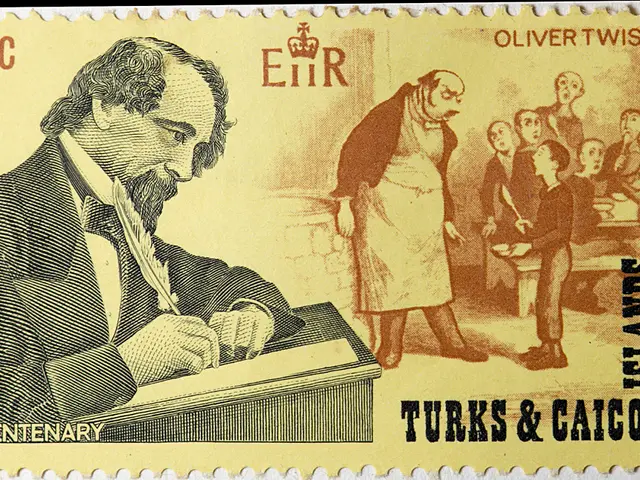Proposed boost in tax for gambling may generate €53 million, according to the Department of Finance
Ireland's Proposed Betting Tax Hike: Implications for State Revenue and the Betting Market
The Department of Finance's Tax Strategy Group (TSG) has proposed several changes to Ireland's betting tax structure, aiming to boost state revenue while navigating potential impacts on the betting market.
Impact on State Revenue:
The TSG suggests increasing the betting tax rate by one percentage point, which could potentially add €53 million to the government's annual revenue. This move follows the 2019 increase from 1% to 2%, raising the tax take from betting to €95 million.
In addition, the TSG proposes a higher Vehicle Registration Tax (VRT) rate of 15% for vans and light commercial vehicles emitting more than 260g/km of CO2, potentially generating €28 million based on 2024 registrations.
The TSG also suggests increasing the NOx surcharge on new and imported cars by €5 per mg/km, potentially generating another €15.5 million.
Impact on the Betting Market:
The implications for the betting market are complex. While higher tax rates may lead to greater tax collections, they can also affect the behavior and viability of large bookmaking firms versus small independent operators.
Large bookmaking firms, such as Irish-based giant Flutter Entertainment through its subsidiary Paddy Power, Boylesports, and UK-based Ladbrokes, are better equipped to absorb or pass along higher taxes due to their scale and brand strength.
On the other hand, small independent operators may find increased tax rates more challenging, potentially reducing competition and diversity in the market. Proposals to introduce additional taxes, such as a 2% tax on all Ohio wagers atop the existing 20% tax on adjusted revenue, may further strain smaller firms.
Implications for Large Bookmaking Firms vs. Small Independent Operators:
The TSG does not name the three large businesses that dominate the Irish betting market. However, the report indicates that the burden of additional tax increases would mainly impact large bookmaking firms.
Summary:
The TSG paper outlines a budget option of increasing the higher rates of Vehicle Registration Tax (VRT) by one percentage point, which could raise significant revenue for the government. Additionally, the TSG proposes creating a new Benefit-in-Kind tax (BIK) category for zero-emission vehicles, with rates ranging between 6 and 15% depending on annual business mileage.
However, the proposed changes to the betting tax rate could have complex effects on the betting market, especially regarding the behavior and viability of large bookmaking firms versus small independent operators. The dynamic created by these proposed changes could lead to a shift in the market towards consolidation around larger operators due to the increased regulatory and tax burdens.
[1] https://www.legislature.ohio.gov/legislation/legislation-documents/house-bill-194 [2] https://www.pennlive.com/news/2020/05/pennsylvania-sports-betting-revenue-in-may-surpasses-40-million.html [3] https://www.gamingtoday.com/sports-betting/sports-betting-revenue-growth-trends-2021 [4] https://www.missouricapitol.org/news/2022/05/19/missouri-sports-betting-bill-includes-high-tax-rate-and-fees-for-licensees [5] https://www.cleveland.com/open/2021/11/ohio-sports-betting-bill-includes-new-tax-on-all-wagers.html
- The increased betting tax rate proposed by the Department of Finance's Tax Strategy Group could potentially generate an additional €53 million for Ireland's government, posing complex implications for the betting market, especially between large bookmaking firms and small independent operators.
- With the increased regulatory and tax burdens, the proposed changes to betting taxes in Ireland may lead to a market consolidation around larger operators, as smaller independent operators may find it more challenging to compete under these revised financial conditions.




